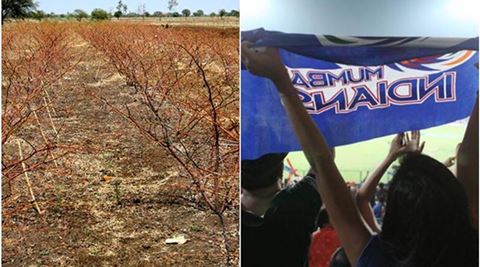Opinion IPL vs drought
Court is right to express its concern. But it may have framed a false opposition.

With just a day left for the inaugural match, the shadow of the Marathwada drought has fallen on the Indian Premier League (IPL). On Thursday, the Bombay High Court cleared the inaugural match to be held in Mumbai on Saturday, but the fate of 19 others, scheduled to be held in Mumbai, Pune and Nagpur, will be decided only after April 12. A day earlier, the court had asked the government: Should the cricket tournament be held when people in drought-hit areas are going without drinking water for days? In framing the question in this manner, the court may well be doing injustice to the serious issue it actually seeks to address.
It is true that pitch maintenance requires enormous amounts of water — on an average, one lakh litres of water is used up per day in the run-up to a match. But so do many other activities that may appear less compelling when compared to the water needs of households and farmers. It is facile to draw a link between drought relief and socio-economic activity-as-usual and insist that the latter be summarily brought to a halt for the former. Such a demand encourages false oppositions which eventually distract from the search for the real solutions. Water, especially in times of drought, needs to be used judiciously and the Maharashtra government has done well to initiate some steps to regulate its supply and consumption in the context of the crisis in the state. In the longer run, the economics of water extraction, distribution and consumption is a complex phenomenon that defies one-stop prescriptions. The IPL is a massive economic activity that provides livelihood to thousands of people and its scale necessitates meticulous planning. To disrupt its organisation so close to the event would lead to logistical problems — without delivering on the real intent, which is helping Marathwada overcome its water crisis.
Watch video Discussing The IPL Water Controversy
The immediate drinking water supply issue must be met by improving the delivery of potable water using more tankers, water trains and other delivery channels. Going ahead, localised water conservation measures, including check dams and farm ponds, should be encouraged. Meanwhile, debate on drought should steer clear of two-minute, too-tidy solutions.





